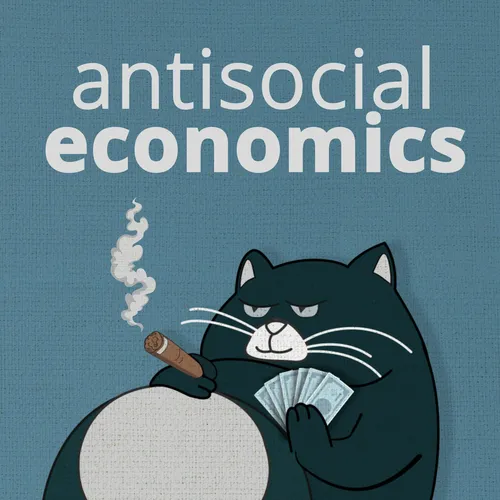Episode 1: How does economic insecurity help to explain Britain’s political volatility? And what is the role of wealth in this equation?
- Author
- Sarah Kerr
- Published
- Wed 30 Jul 2025
- Episode Link
- None
Economic insecurity in midlife is compounded by lack of wealth in the form of savings or private pensions.
Professor Jane Green is a political scientist at the University of Oxford and one of the lead researchers for ‘The British Election Study’. In 2025, she co-authored a report for JRF with colleagues at the Nuffield Political Research Centre called ‘Addressing Key Voters’ Economic Insecurity is Vital for all Parties’. In this episode, Jane talks about this report and reveals the links between economic insecurity and current political discontent and electoral volatility.
The study presents a more nuanced way to understand economic hardship, focusing not just on income or poverty but on people’s subjective sense of economic insecurity; worries about outgoings, lack of savings, and fears for the future.
The report shows that economic insecurity is widespread, especially among midlife households who have high outgoings and a limited safety net.
This insecurity is linked to political disengagement and shifting voter behaviours. Notably, Labour lost far more support from insecure voters than secure ones ahead of the 2024 election. Green argues that parties must address economic insecurity - not just poverty - to reconnect with voters.
Professor Jane Green and Dr Sarah Kerr explore how wealth (in this context, in the form of savings or property wealth and pensions), rather than income alone, shapes people’s life chances and contributes to their sense of economic security.
Series 1 of ‘Antisocial Economics: Talking about Wealth’ will run as a special series of 6 episodes.
Sarah Kerr is a Research Fellow at the International Inequalities Institute. She completed her PhD at the University College London on the long legislative history of inequality between richer and poorer people. Her research interests include forms of justice-making, power, the historical sociology of wealth, and public and political attitudes to wealth, the wealthy and wealth inequality. She co-authored ‘Changing the narrative on wealth inequality’ with Michael Vaughan in 2024, and ‘Talking About Wealth Inequality’ with Michael Vaughan and Annalena Oppel in 2025.
In 2024, Sarah published Wealth, Poverty and Enduring Inequality, Let’s Talk Wealtherty. Starting from the premise that continuing to centre poverty encourages researchers and policymakers alike to 'look down' she contributes to a strand of social policy and sociological literature that asks what happens if we 'look up'?
Putting wealth at the heart of a social critique and redescribing the relations we see around us - and the history of those relations - from this perspective, the book recasts the history between the state and richer and poorer people through the idea of wealtherty: the enablement of wealth hyper-concentration; the perpetuation of social and policy divisions; the marketisation of influence; the gatekeeping of knowledge-making and knowledge resources.
—-------------------------------------------------------------------------------
Antisocial Economics is an informed and accessible space for thinking and talking about wealth as a social problem, and specifically, for thinking about the effects of extreme private wealth ownership on social and environmental sustainability.
So why is the podcast called Antisocial’ Economics?
The economy isn’t working for most people, and wealth inequality is at the heart of the problem. We all work hard, but the wealth we create together is extracted to enrich a few men at the top. It feels unfair. And that’s because, frankly, it is!
This podcast is for anyone who wants to understand our social economy in a more critical way.
